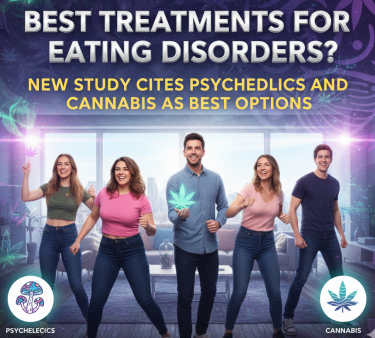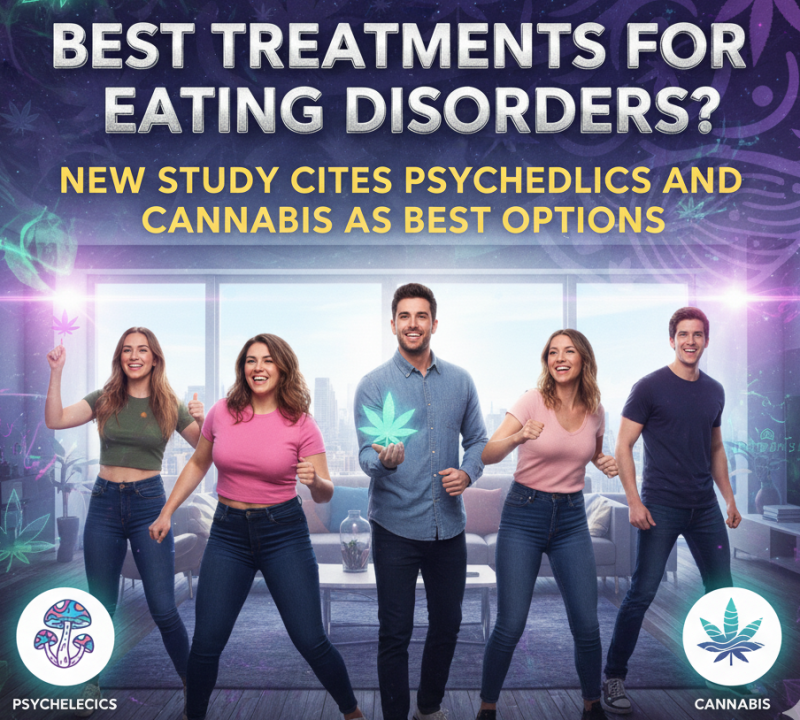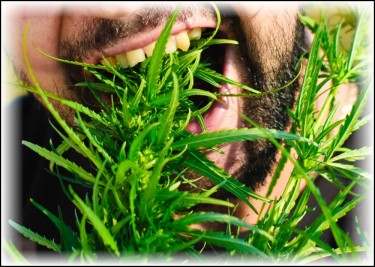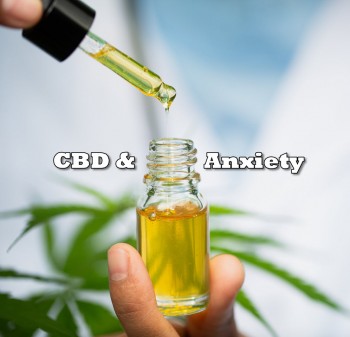
New Study Cites Psychedelics And Cannabis As Best Treatments For Eating Disorders
Eating disorders still affect approximately 5% of the population, most especially affecting young adults.
There are different types of eating disorders but anorexia nervosa and bulimia are the most common in women. However, these conditions can affect any gender and any age. Anorexia nervosa is characterized by starving oneself, while bulimia involves cycles of binge-eating and inducing vomiting or starvation. Other eating disorders include binge eating disorder (BED), which is similar to bulimia without the compulsion to vomit, exercise excessively, or abuse laxatives to prevent weight gain.
These conditions are classified as psychiatric illnesses that revolve around food and eating. Generally speaking, anyone who is abnormally and excessively preoccupied with food or is constantly dissatisfied with their body weight or shape can have some type of an eating disorder.
Eating disorders also include unhealthy methods of controlling weight, such as chewing then spitting out food, abusing diet pills or diuretics, excessive exercise, excessive fasting, or binge-eating.
No matter which way you look at it, food and eating disorders are some of the most difficult conditions to treat. The symptoms are a combination of psychological, biological, and social factors which may also occur alongside other mental health conditions such as ADHD, depression, obsessive-compulsive disorder, and post-traumatic stress disorder.
Psychedelics and Marijuana: Top-Rated Treatments
Now, a new study from the American Medical Association (AMA) reveals that psychedelics and marijuana are among the most promising drugs for treating and managing eating disorders. For the study, researchers from the University of Sydney, together with investigators from New South Wales Health, analyzed several different drugs and their impact on treating eating disorders. These drugs included psychedelics, alcohol, caffeine, marijuana, opioids, and stimulants, among others.
The investigators then studied survey results taken from 6,612 individuals who responded to questions regarding their substance use in the past year, as well as their mental health and eating disorder symptoms.
“Cannabis and psychedelics were highest-rated for improving ED symptoms,” wrote the report. They also noted that prescription antidepressants were rated the most for mental health, in general, though not eating disorders. “A striking outcome was the favorable self-reported ratings of psychedelics and cannabis for alleviating [eating disorder] symptoms,” wrote the authors.
It’s also worth noting that psilocybin, LSD, and cannabis were highly rated for their ability to improve mental health in general. On the other hand, participants classified tobacco, nicotine, and alcohol as the most harmful substances.
“When asked to identify the drug of choice for self-medicating ED symptoms, the most popular drug among respondents was cannabis,” read the paper. Given how challenging it is to treat eating disorders, most of the substances on the list were found to make ED symptoms worse. “The findings of this survey study of prescription and nonprescription drug use suggest that cannabis and psychedelics were perceived by survey respondents as efficacious in alleviating their ED symptoms,” they added.
Other Studies
There have been other studies looking into the use of cannabis and psychedelics for eating disorders, with great success.
This brings a great deal of hope for patients and their loved ones who struggle with recovery from eating disorders. While there are several noteworthy FDA-approved drugs to help patients heal, addressing the issue is never one-dimensional because numerous factors are involved.
In another study, ketamine was found to be safely used by patients struggling with eating disorders, even if they are already suffering from malnutrition. Ketamine has already been known for its ability to work on treatment-resistant depression as well as other mood disorders, which are closely linked to eating disorders. But the research on ketamine is tricky, since ED patients with malnutrition must be excluded due to being more vulnerable to side effects.
However, this study proved that ketamine can be safely tolerated by patients with a body mass index as low as 10, as long as it’s done under controlled medical supervision. It must be emphasized that these patients were under higher levels of care and were provided with psychological support throughout the process.
Cannabis also helps; studies show that individuals with anorexia nervosa possess less natural cannabinoids in their body, which contributes to the lack of appetite and mood disorders. But researchers have found that even small doses of THC can help improve appetite, contribute to weight gain, and offer a boost in one’s mood. The studies have also shown that people who struggle with binge eating, on the other hand, have excessive endocannabinoids in their blood.
Conclusion
Both cannabis and psychedelics show solid promise in how we approach the management of eating disorders. They provide alternative treatments that more effectively target both psychological and biological roots of these conditions, often in ways that pharmaceutical drugs and conventional therapies cannot.
After all, eating disorders are strongly associated with imbalances in the endocannabinoid system, as well as in our dopamine and serotonin levels. These are critical for maintaining healthy relationships with food. It’s also becoming clearer that psychedelics and cannabis address the trauma, depression, and anxiety that are behind most cases of eating disorders. Psychedelics, in particular, are extremely valuable in giving the brain the reset that it needs, while helping patients become more open to therapy.
The bottom line is that cannabis and psychedelics aren’t just capable of treating eating disorders. They positively impact the circuits in the brain that are responsible for reward, control, and fear - while giving patients hope for holistic healing that’s much more long-lasting and sustainable.






